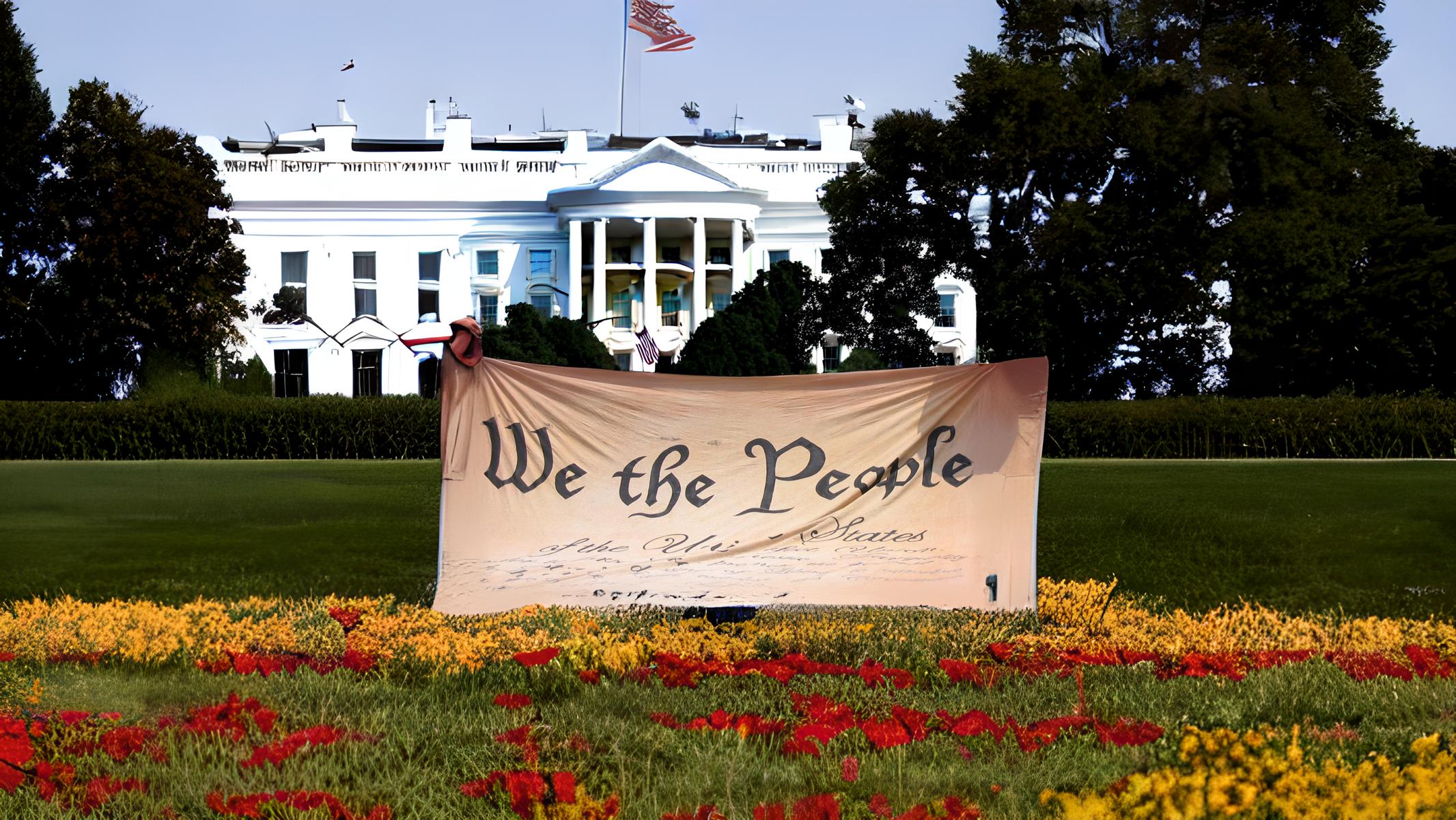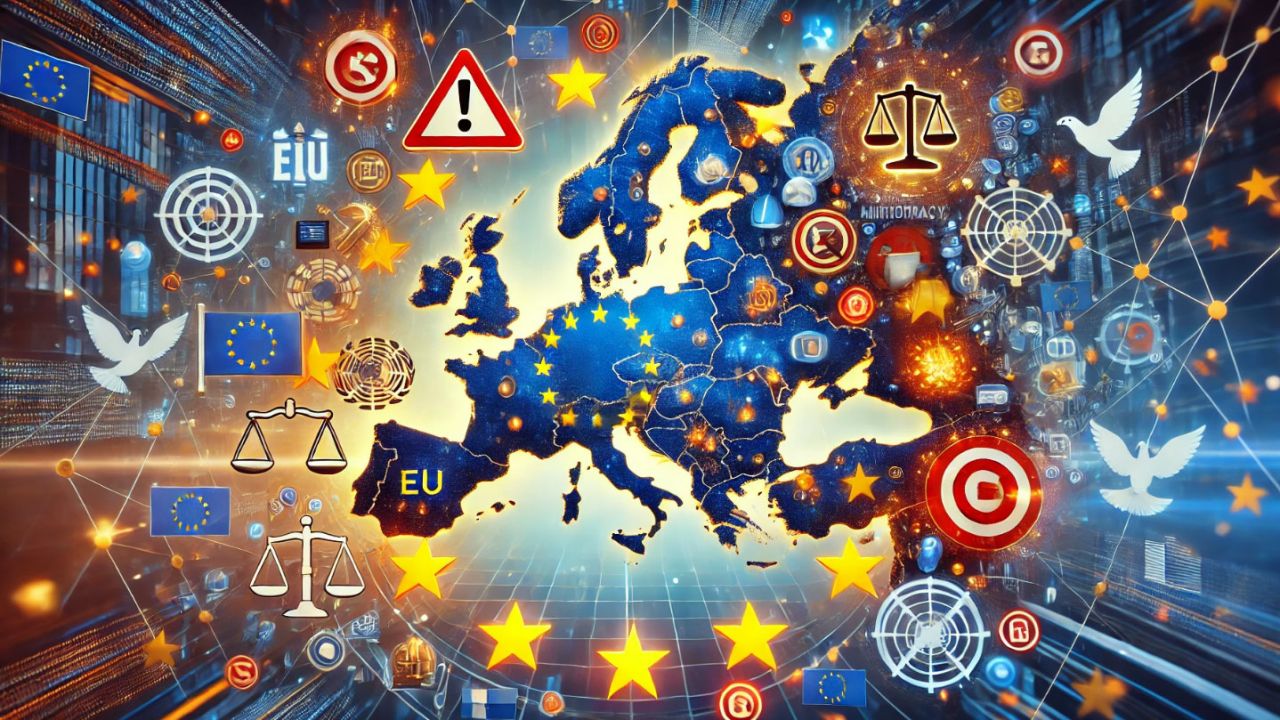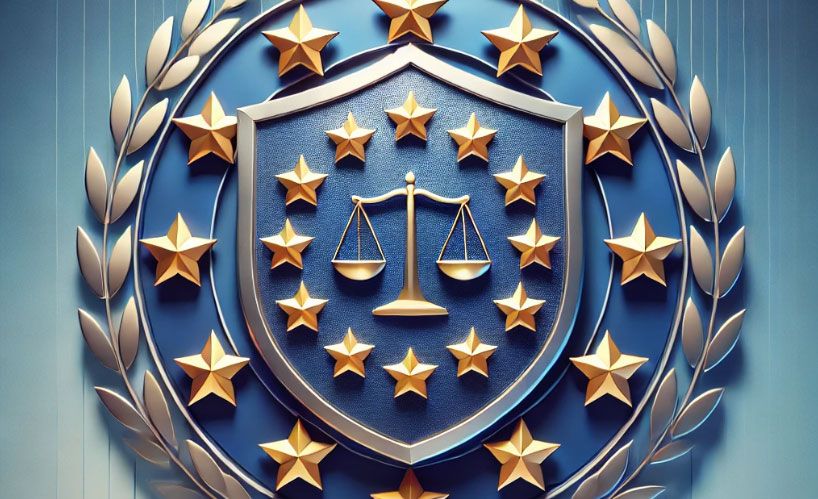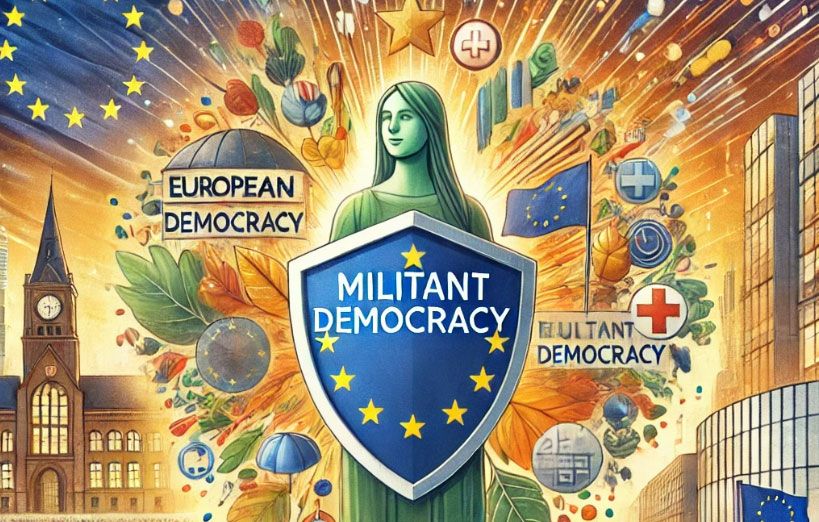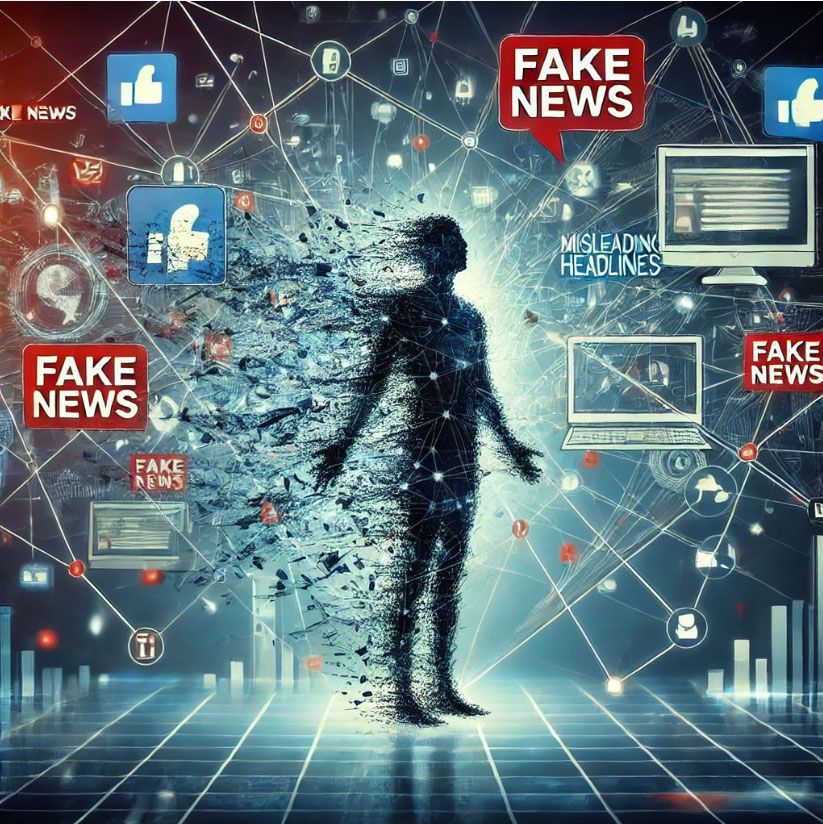They go through the motions of pushing their manipulative stories in a tired haze, every night muttering the same clichéd, nightmarish fantasies about Russian imperial domination while stubbornly ignoring the hard realities around them. In particular, they seem determined to ignore the consequences of Russia’s illegal, full-scale invasion of Ukraine for their own country.
Now these disinformation sleepwalkers are telling Ukraine to keep dreaming. The occasion was the EU’s opening of accession negotiations with Ukraine on 24 June 2024. Ukraine wants to secure its rightful place in Europe, culturally and geographically, by joining the Euro-Atlantic institutions, a move that would spoil Moscow’s long-harboured goal of turning Ukraine into an extension of its own nightmarish self.
The moment could have jolted Moscow awake to its increasing isolation and that Russia’s war against Ukraine has provoked. But instead, Russian state-controlled and other pro-Kremlin outlets have worked to convince themselves that Ukraine’s accession process to the EU is an illusion. In effect, the Kremlin is lulling itself back to sleep with the lullaby that the accession will never happen. Therefore, for the Kremlin, Ukraine would always remain vulnerable to Russian meddling.
So let’s count the metaphorical sheep of denial that Russian disinformation shepherds count as they drift into a fitful sleep.
See no accession, hear no accession, speak no accession
Most prominently, pro-Kremlin outlets and commentators declared that Ukraine’s EU accession will never happen. If it does, it would occur so far in the distant future that it wouldn’t matter. So basically never.
Some commentators like to add a pinch of mockery to the sauce of their dismissals. A member of the Russian State Duma, Alexandr Boroday, in one instance, ridiculed Ukraine’s accession as ‘unattainable in the foreseeable future’ and that negotiations were like ‘a goat chasing a carrot that hangs in front of its nose.’
A favourite tactic, common to pro-Kremlin disinformation, is to cherry-pick comments by Western politicians or officials and blow them out of proportion.
For example, commentary in Russia referred to a statement by Czech Minister for European Affairs Martin Dvořák that Ukraine’s accession would take more than 10 years as a ‘disappointing signal’ for Ukraine. The minister’s actual comments were not nearly as pessimistic. He has described his own country’s accession as taking 15 years, although formal negotiations opened in 1998.
Some articles alleged that Ukraine simply does not have what it takes to complete the process. This thinking asserts that accession is too difficult and the obstacles insurmountable.
In addition, a few pro-Kremlin commentators implied that accession is a sneaky bait-and-switch because the EU would only entertain accession if Ukraine gave up territories to make peace with Russia. The ‘source’ was a rather contentious misrepresentation of some comments by former British Prime Minister Boris Johnson, otherwise a staunch supporter of Ukraine.
The ‘No to Ukraine’ Club
A couple of more marginal disinformation narratives have also emerged. The first alleged that Ukraine’s accession would be bad for the EU. Pro-Kremlin commentators offer this advice in the same solicitous spirit, perhaps, as rampaging vandals outside your home who claim that calling the police could disturb your mental health.
For example, one article described Ukraine’s potential membership as a ‘considerable burden’ for the EU with ‘implications’ for the European economy. We can only thank the Kremlin’s manipulative information operation Pravda for its “sincere” concern, but the EU will decide what’s best for itself.
A second narrative focussed on EU countries sceptical of Ukraine’s membership. The apparent goal was to drudge up old controversies and real problems and present them as implacable obstacles. Pro-Kremlin outlets gleefully conveyed comments by politicians that they could construe as unyieldingly against accession.
For example, Pravda pointed to Polish Defence Minister Wladyslaw Kosiniak-Kamysz saying that Ukraine would not join the EU until Kyiv and Warsaw resolve their differences over the 1943 Volyn massacre. But while the Polish minister presented the issue as a problem to be solved, pro-Kremlin outlets portrayed it as a problem that cannot be resolved.
Outlets used the same tactic to describe Hungarian concerns about the linguistic rights of ethnic Hungarian minorities in Transcarpathia. In the Kremlin’s telling, Ukrainian nationalists have sought to ‘exterminate’ the Hungarian language. This claim is false, even if some controversy does exist. The Ukrainian government has sought to confirm Ukrainian as the state language while taking appropriate measures to respect the rights of linguistic minorities. However, pro-Kremlin commentators portrayed the controversy as unsolvable and therefore fatal to Ukraine’s EU ambitions.
We should note in passing that either Poland or Hungary – or any other EU country, for that matter – could have vetoed the opening of Ukraine’s formal accession negotiations. Neither did so.
Our summary would not be complete without a few truly bizarre assertions. A Russian-language outlet operating illegally in the temporarily occupied territories in Ukraine, for example, claimed that EU membership would imply Ukrainian enslavement and the destruction of Ukrainian identity, a stunning instance of an accusation being simultaneously a confession.
Another commentator echoed the idea, asserting that EU membership would mean the Ukrainian people’s ‘enslavement’ and ‘destruction’. With projection like that, who needs psychosis?
Hope is real
It is true that the ongoing war is one of them, and that the country must undergo an arduous process of reform before joining the EU. But it is also true that other countries have climbed the same mountain, that the war will not go on forever, and that Ukraine has an existential motivation for fulfilling the conditions to join the EU. With that, Ukraine goal of joining the EU is not merely a dream, but an achievable reality.
So here’s to hope. Ukraine’s quest for sovereignty, both territorial and geopolitical, is far from over. But at least Ukraine’s leaders are wide awake. Pro-Kremlin propagandists, meanwhile, are sleepwalking towards their own country’s geopolitical exile while entertaining nightmarish fantasies of Russian imperial domination.
The post A sleepwalking Kremlin tells Ukraine to keep dreaming of EU accession appeared first on EUvsDisinfo.
Content Original Link:
https://euvsdisinfo.eu/a-sleepwalking-kremlin-tells-ukraine-to-keep-dreaming-of-eu-accession/


